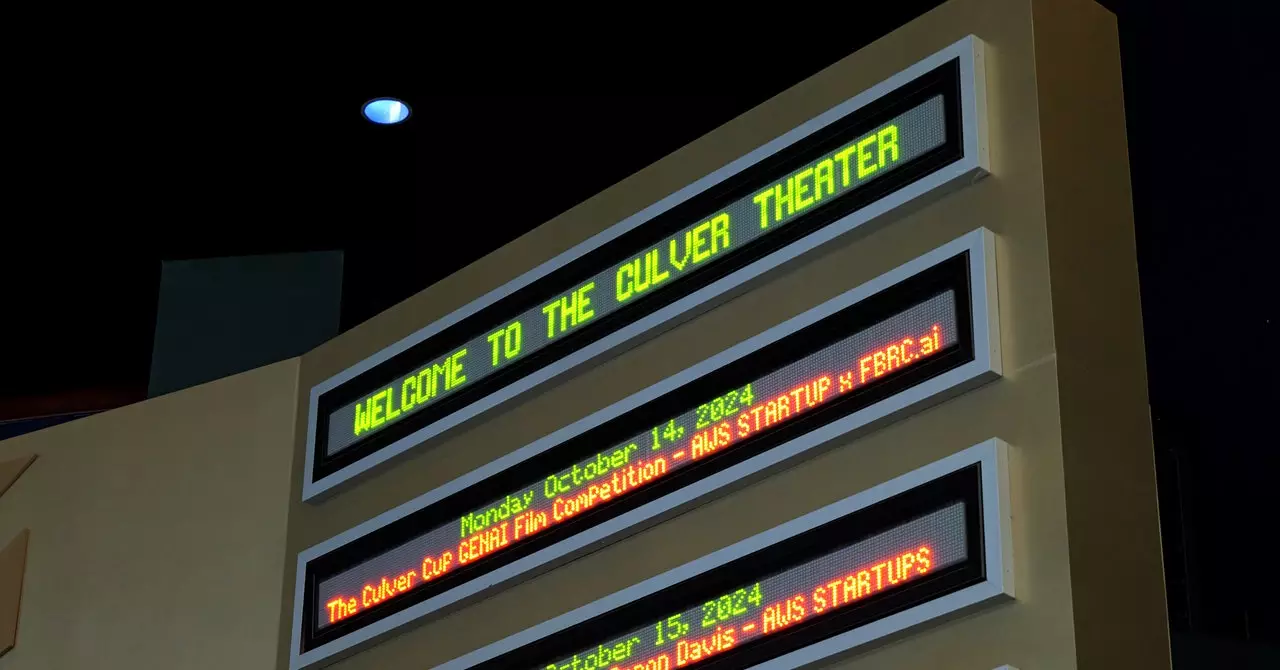The film industry stands at a crossroads, confronted by the burgeoning influence of artificial intelligence (AI). As technological advancements reshape the landscape of filmmaking, traditional storytellers must adapt to ensure their narratives resonate with evolving audience expectations. In a world where the mechanics of production are increasingly informed by data-driven methodologies, the essence of storytelling remains a vital component. This article explores the intersection of AI and filmmaking, drawing insights from industry experts while critically assessing future implications for actors, filmmakers, and distribution networks.
A profound point emerges in the discourse about AI’s role in filmmaking: storytelling relies fundamentally on emotional engagement. Filmmakers like Meta Puppet emphasize the necessity of infusing narratives with ’emotional heft’ to truly stand out in today’s crowded marketplace. His creation, “Mnemonade,” serves as a poignant exploration of memory’s fragility and the bittersweet nature of loss. By employing AI technologies from companies like ElevenLabs to manipulate vocal performances across characters, he illustrates that while the tools of storytelling may evolve, the fundamental premise of connecting with an audience on an emotional level remains constant.
This highlights a critical takeaway for creatives venturing into AI-driven projects: success hinges not solely on leveraging cutting-edge technology, but on maintaining the core elements of human experience that resonate deeply. There’s a universal truth that transcends mediums: audiences crave authenticity and relatability in their narratives.
However, alongside the excitement that accompanies new opportunities lie legitimate concerns, particularly regarding copyright issues and potential job losses. Maddie Hong, who recently competed against Meta Puppet, articulates a common anxiety among filmmakers about the unintended repercussions of integrating AI. As studios grapple with the complexities of image continuity and ownership rights amid AI-generated content, they risk navigating uncharted legal waters.
Moreover, the potential repercussions extend beyond legalities to financial ramifications within the industry. A survey of 300 entertainment leaders indicated that while AI does create some new position opportunities, there is a palpable apprehension about job consolidation and reductions. This paints a picture of an industry in flux, where the implications of AI could lead to significant shifts in roles, sparking anxiety among industry professionals about their job security.
Reevaluating Risk and Creativity in Hollywood
Despite these challenges, some industry leaders remain optimistic about AI’s potential to reinvigorate Hollywood’s creative environment. Amit Jain, cofounder of Luma, suggests that generative AI could reduce the creative stagnation currently plaguing high-budget productions, which often rely on existing franchises to minimize risk. This propensity to recycle content raises questions about innovation and original storytelling. The burgeoning ability to produce affordable content could entice filmmakers to explore unique narratives, diversifying the cinematic landscape we see onscreen.
Jain’s perspective aligns with a broader call for creativity in the industry. By lowering the barrier to entry for production, generative AI could foster an environment where many diverse voices thrive, ultimately leading to revitalized storytelling avenues that resonate with a wide array of audiences. However, it is critical to balance technological advancements with a respect for original ideas and copyright to ensure a thriving creative ecosystem.
Furthermore, it is vital to recognize the role of skill in an AI-enhanced world. Meta Puppet draws an apt analogy likening generative AI to a piano: while the instrument is available to all, not everyone is a virtuoso. The ability to create masterpieces utilizing AI tools demands a unique synthesis of creativity, technical know-how, and artistic insight. Filmmakers must embrace the challenge of wearing multiple hats, understanding both technology and narrative structure to create compelling art that resonates with audiences.
This duality represents both the opportunity and the challenge of integrating AI into filmmaking. As creators harness sophisticated tools, they must also ground their work in the timeless traditions of storytelling, ensuring that the heart of their narrative beats strongly amidst an increasingly mechanized production process.
While AI presents numerous opportunities and challenges to traditional filmmaking, the key to success lies in navigating the uncharted waters thoughtfully. By anchoring narratives in genuine emotional connections, addressing legitimate legal and job concerns, and recognizing the irreplaceable value of skill and artistry, the film industry can adapt to this new era. The landscape of film production may change, but the enduring power of storytelling will remain a brightly lit beacon guiding creators and audiences alike. As we embrace this evolving narrative, the heart of filmmaking—its capacity to inspire, evoke, and connect—endures, promising a vibrant future for cinema.


Leave a Reply